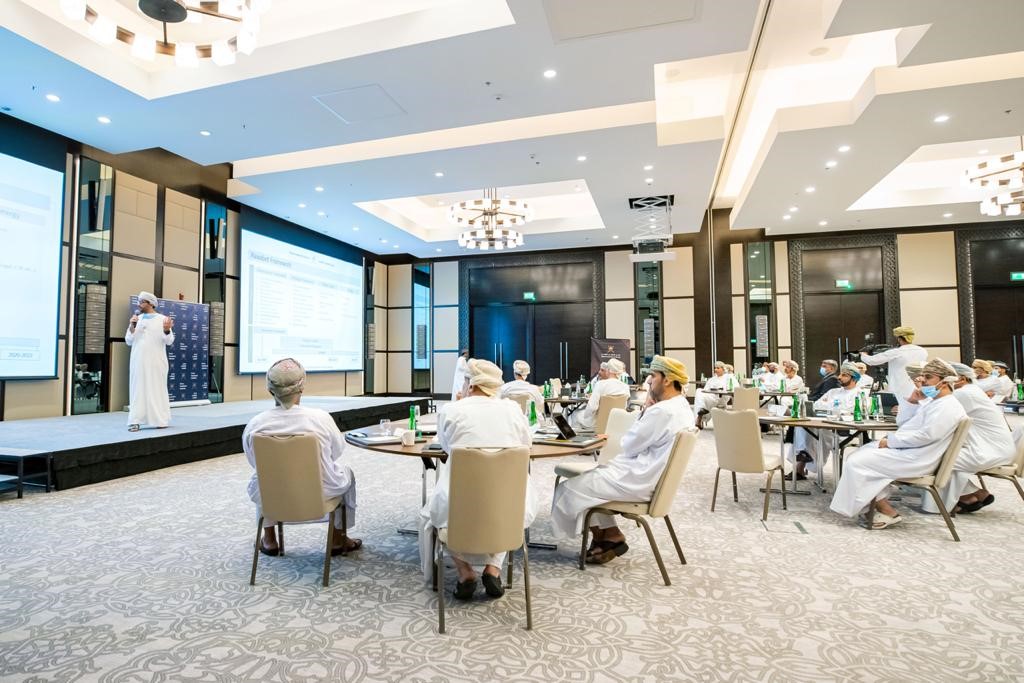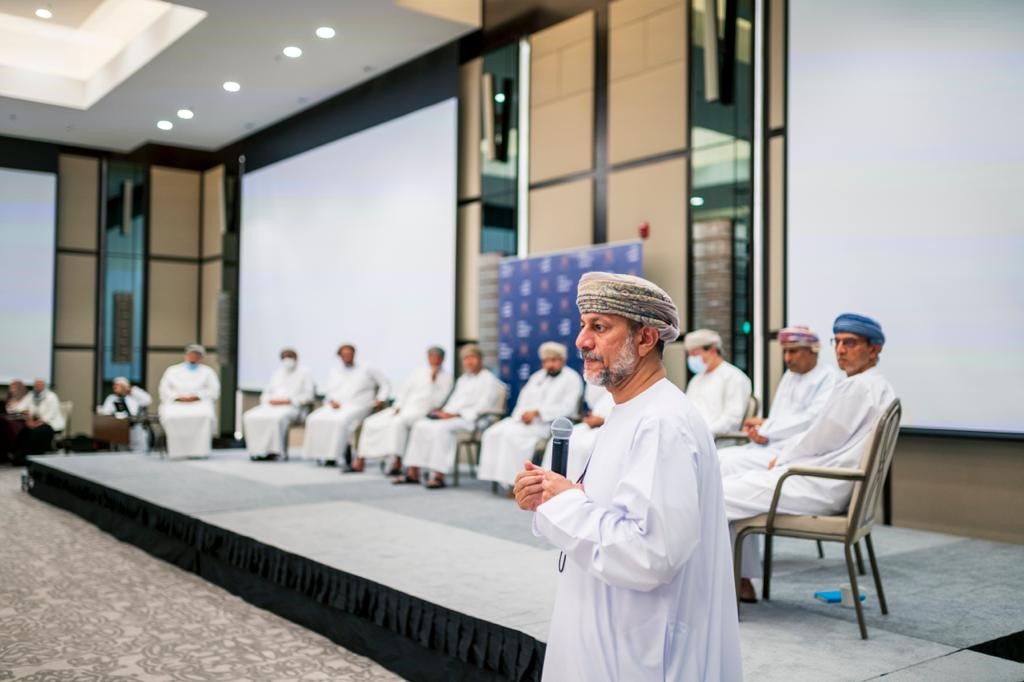2021-06-20
Oman Investment Authority (OIA) implemented programmes and measures to establish a unified governance system for state-owned enterprises.
During the First Year of Its Inception:
Oman Investment Authority (OIA) implemented programmes and measures to establish a unified governance system for state-owned enterprises.
In its first year of inception, Oman Investment Authority (OIA) successfully implemented several programmes and measures to set a clear-cut form of governance. The programmes serve as a springboard for state-owned enterprises’ operational and financial performance in line with provisions of the Royal Decree No. 61/2020 issued in June 2020. More specifically, OIA drafted regulatory frameworks and policies meant to establish an integrated environment for the governance of state-owned enterprises. It also restructured several companies under its supervision and formed new boards of directors by appointed Omani nationals with high expertise and experiences from both the public and private sectors.
In line with its efforts to achieve harmony, unity and integration, OIA conducted several meetings and workshops with the BODs of these companies, which created vital performance indicators to ensure the efficiency of their activities and goal achievement. In addition, the meetings identified the challenges and the possible ways to address them and meet objectives, the most important of which is the formulation of a general framework for the governance of OIA companies to upgrade their performance and regulate the relationship between them and OIA at all levels. Other outcomes include:
- Empowering the BODs.
- Drafting specific performance indicators for them.
- Setting guidelines to contribute more actively to the economic setup and achieve in-country value.
At the centre of this process is developing a comprehensive plan for investment and partnership, including listing certain enterprises in stock markets. Other goals include:
- Diversifying sources of income.
- Bolstering economic diversification.
- Increasing the contribution of non-oil investments in the Gross Domestic Product.
- Attracting direct foreign investment to the Sultanate.
 The efforts toward restructuring OIA-owned enterprises include the merger of three companies, namely, Blue Waters LLC, Al Wusta Fishery Industries LLC and Oceanic Shrimp Aquaculture LLC e under the new umbrella Oman Fisheries Development. In addition to re-evaluating the Seafront Project of Muttrah, restructuring companies operating in the telecom and IT sector, restructuring the BOD of OQ Company, forming the BOD of Agricultural Production and Marketing Company, introducing changes in the formation of the BODs of some companies operating in the energy sector, Oman Fisheries Development and Oman Development Bank. OIA also led the project to restructure the water and water services sector in coordination with the Ministry of Finance. Other efforts include the dissolution of Oman Aviation Group (OAG), announcing the restructuring of the tourism and real estate investments and transferring them to Omran Group. OIA also worked on restructuring and scaling down Oman Air, announcing the BOD of Muscat Stock Exchange. Moreover, OIA appointed experts from the public and private sectors to the BODs of its affiliated companies through the Thiqat programme.
The efforts toward restructuring OIA-owned enterprises include the merger of three companies, namely, Blue Waters LLC, Al Wusta Fishery Industries LLC and Oceanic Shrimp Aquaculture LLC e under the new umbrella Oman Fisheries Development. In addition to re-evaluating the Seafront Project of Muttrah, restructuring companies operating in the telecom and IT sector, restructuring the BOD of OQ Company, forming the BOD of Agricultural Production and Marketing Company, introducing changes in the formation of the BODs of some companies operating in the energy sector, Oman Fisheries Development and Oman Development Bank. OIA also led the project to restructure the water and water services sector in coordination with the Ministry of Finance. Other efforts include the dissolution of Oman Aviation Group (OAG), announcing the restructuring of the tourism and real estate investments and transferring them to Omran Group. OIA also worked on restructuring and scaling down Oman Air, announcing the BOD of Muscat Stock Exchange. Moreover, OIA appointed experts from the public and private sectors to the BODs of its affiliated companies through the Thiqat programme.
The Rawabet programme rolled out by OIA immediately after its establishment, was designed the set the general regulatory framework for the governance of State-owned enterprises and to serve as a direct link between OIA and the companies under its wing to streamline, unify and align their policies and systems to the Oman Vision 2040 and its related national priorities. The Rawabet programme also aimed to develop nine sets of policies and guidelines over three phases. Phase one features policies and procedures concerning information security, legal affairs, business sustainability management, internal audit, communication and media and risk management. On the other hand, phase two and three delivered policies and guidelines in connection with the treasury, investment, evaluation of assets, accounting principles, shareholders exit, in-country value (ICV), support to small and medium enterprises (SMEs) and corporate social responsibility (CSR).
Since its launch, the Rawabet programme led to over 400 interactions between OIA and State-owned enterprises and the engagement of more than 70 employees from OIA and more than 300 workers from various enterprises. In addition, the Rawabet programme conducted 3 workshops with the chairpersons of BODs and CEOs of state-owned enterprises and over 40 workshops with the heads of entities concerned with the unified governance framework.
OIA is currently working alongside state-owned enterprises to develop a Governance Charter in line with the best local and international practices and Corporate Governance Principles for Companies in which the Government holds Shares issued by the Capital Market Authority (CMA). To include long-term strategies, action plan, approving the annual budget (financials), HR policies, treasury, distribution of dividends, tenders and procurements, in addition to any other tasks deemed appropriate to direct and push companies on the path towards integration and business sustainability.

